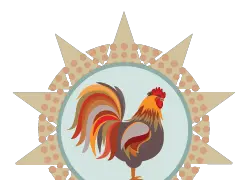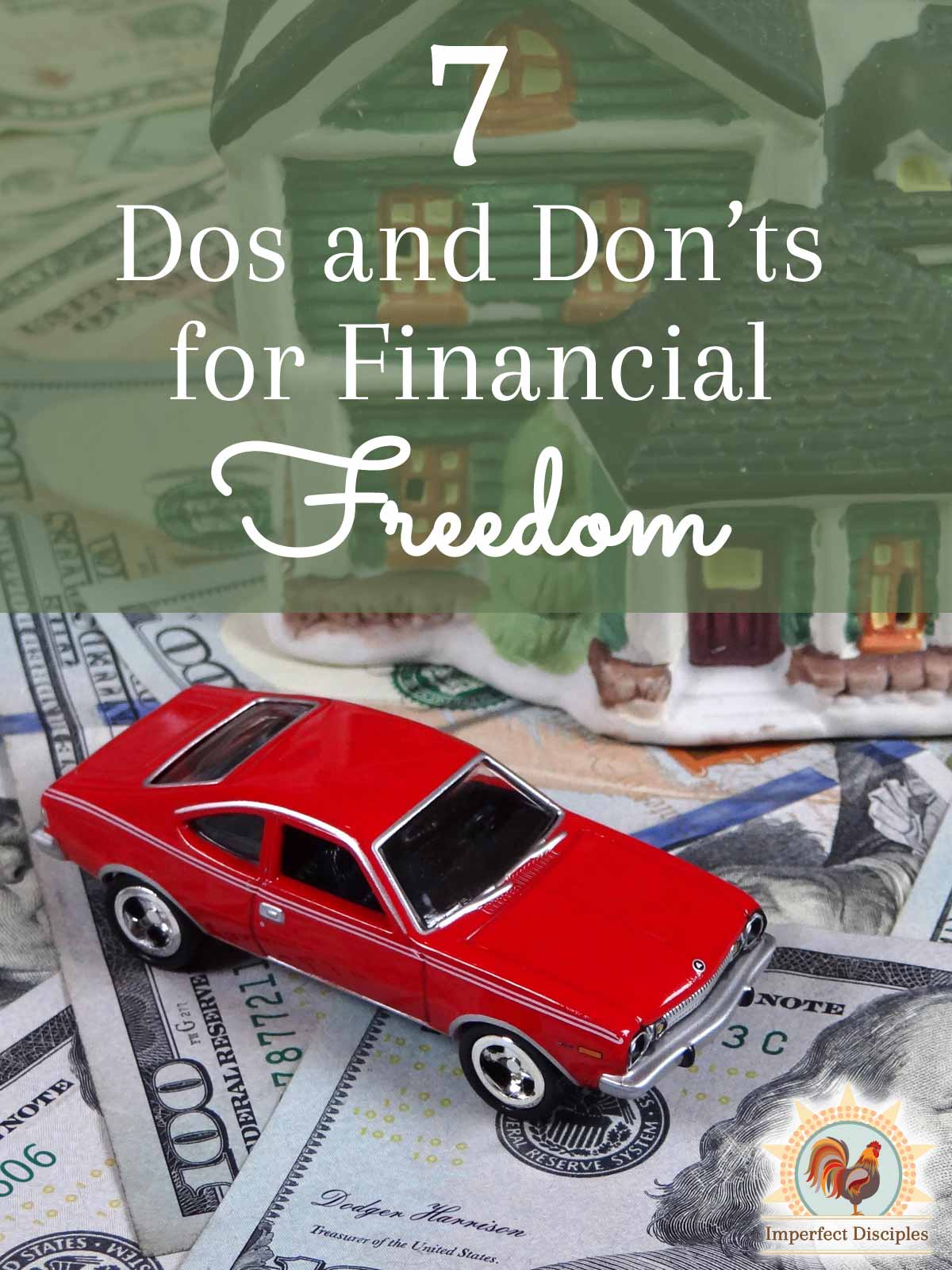Everyone wants financial freedom, the freedom to purchase all the things we want and need without worrying that we won’t have enough. That freedom can come only by being free from debt, as Proverbs 22:7 states: “The rich rules over the poor, and the borrower is the slave of the lender.” (ESV). Read about our journey toward financial freedom, at least with regards to how our vehicles relate to our finances, so you can learn from our mistakes.
Financial Mistakes
Our journey starts before we got married. I got my first car from my uncle just before I went to college. It was a black 2000 Ford Taurus in great condition. I decided to keep it at my parents’ house instead of bringing with me to school. They ended up needing to use it a bunch while I was in college, which was fine with me. Why make them spend money they didn’t have on a new car, while my car was sitting unused? When Joe and I got married, we got my car back as our first and only vehicle. But the few years it spent at with parents were hard on it, so it starting breaking down on us and needing repairs relatively frequently, enough so that we got fed up with it when it broke down one last time.
We scrapped it so we wouldn’t have to pay to fix it or to tow it somewhere. Scrapping it gave us the money we needed to pay a hunting fine Joe had gotten (thanks to his inexperience and the lack of help from the experienced hunters). We were happy with God’s timing, providing that payment when we needed it, despite no longer having a car. By this time we had G, Joe was working from home, Joe’s best friend, Bork, was living with us. We were able to carpool with Bork to church, and use it to go shopping when we didn’t feel like walking. This arrangement would have worked out until November, when our next baby was due. We had crunched the numbers and without the car and gas money, we could pay off most of our student loans by October, and then buy a car so we’d have guaranteed transportation to the hospital when the time arrived.
Sadly, we got sucked into a car dealership promotion. We went in to get $5 and we out with a 2008 Honda Accord. Oops! We were so grateful for that car as it served us quite well, but we lost 5 months of paying off our student loans, and added a car payment on top of that. We struggled with financial mistakes like this for most of the 6 years we’ve been married – we’d get something paid off, and then for one reason or another we’d get another loan, or put more money on our credit card.
The Turn-Around
About a year ago, we only had our car payment and our student loans left to pay off. In an effort to pay off some debt quickly, and because we were pregnant with our 4th child who would not fit into the car, we took our 2008 Accord and brought it to a dealership and traded it in for a ’99 Dodge Caravan. Doing that dropped our car loan debt by approximately $8,000! This van has served us well in the past year and a half, as we added that 4th child to the family, and we were able to finally pay off our car loan debts (whoo hoo!).
I hope you read this story and learn from our mistakes and our successes, so you can achieve financial freedom.
The Mistakes We Made
- We were impatient. We bought a car when we didn’t need to, and that slowed our ability to pay off our debt.
- We accumulated more debt we didn’t need. The things we ended up getting the loans for were impulse buys, including our car, and after we got them we tended to end up regretting having bought them.
- We were selfish and blinded by desire. The things we bought were supposed to help us, or looked very desirable. We didn’t allow ourselves to think about our goals, but we saw what we wanted, and had to get it right then.
The Better Alternatives
- Wait! Be patient. We should have saved up instead of taking out loans. If we had taken a day or two to think about the purchases rather than being driven by our impulses to by, we probably would have said no to buying the car (and other things). In buying a car, the smart thing would be to put a ‘car payment’ into a savings account. If you put $200/month into savings for 2 years, you’ll have about $5,000. Paying the same amount each month toward a car loan for 2 years will pay off about $4000 of the balance and the rest will go toward interest. Of course interest rates will determine the exact amounts, but the point is that saving money is worth more than paying money toward debt, and saves you from the stress of being able to make payments if your income changes.
- Don’t take out loans unless you absolutely need to. If it’s something that you don’t absolutely need, find a way to deal without it for a while, or find a solution that is less expensive. Instead of buying new, buy used. Instead of putting a big purchase like a flat screen TV on credit, ask yourself if it’s really something you need. There is a big difference between need and want! 😉
- Get debt paid off so you have more money for the future. Don’t sacrifice the future in order to have something now.
- Make a budget and goals, and keep on track. We had a budget, and goals, but we let ourselves lose track of them too many times to count. As long as we could finagle it, we figured there wasn’t any harm in switching things out for the month, but it made it difficult to actually implement our goal of getting loans paid off quickly.
Sadly, our van’s transmission is beginning to fail right now, which brings up some more important financial decisions we need to make. So what are we going to do about it? We’re waiting, and praying that we’ll find a specific vehicle in good condition for the small amount of money we have available for it. It’ll be God’s hand if we find it, because it’s going price (according to Kelley Blue Book) is at least twice the amount we can spend on it. We have decided that the van isn’t worth fixing, as its cost is more than what it’s worth at the moment, and more expensive than what we are willing to spend on buying a vehicle right now.
We’re praying that the transmission will hold up for the trip down to my parents’ house and all the visits we want to make while down there. Prayers for it to hold together would be greatly appreciated! If it does die before we find a new vehicle, we’ll just go without one for a while. It’s definitely not ideal, but we can make do. We’re trusting that God will provide for our needs when we need it, without going into more debt.
Financial Stewardship Series
This is the first post in a financial series we’ve decided to start, where, every Friday, we’ll be going over what the bible says about money and financial stewardship. We hope it will be beneficial to you, and that you’ll follow along with us. 🙂

